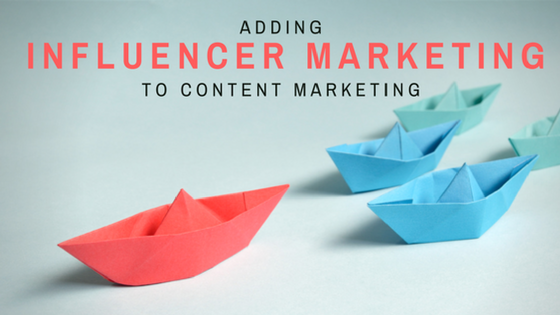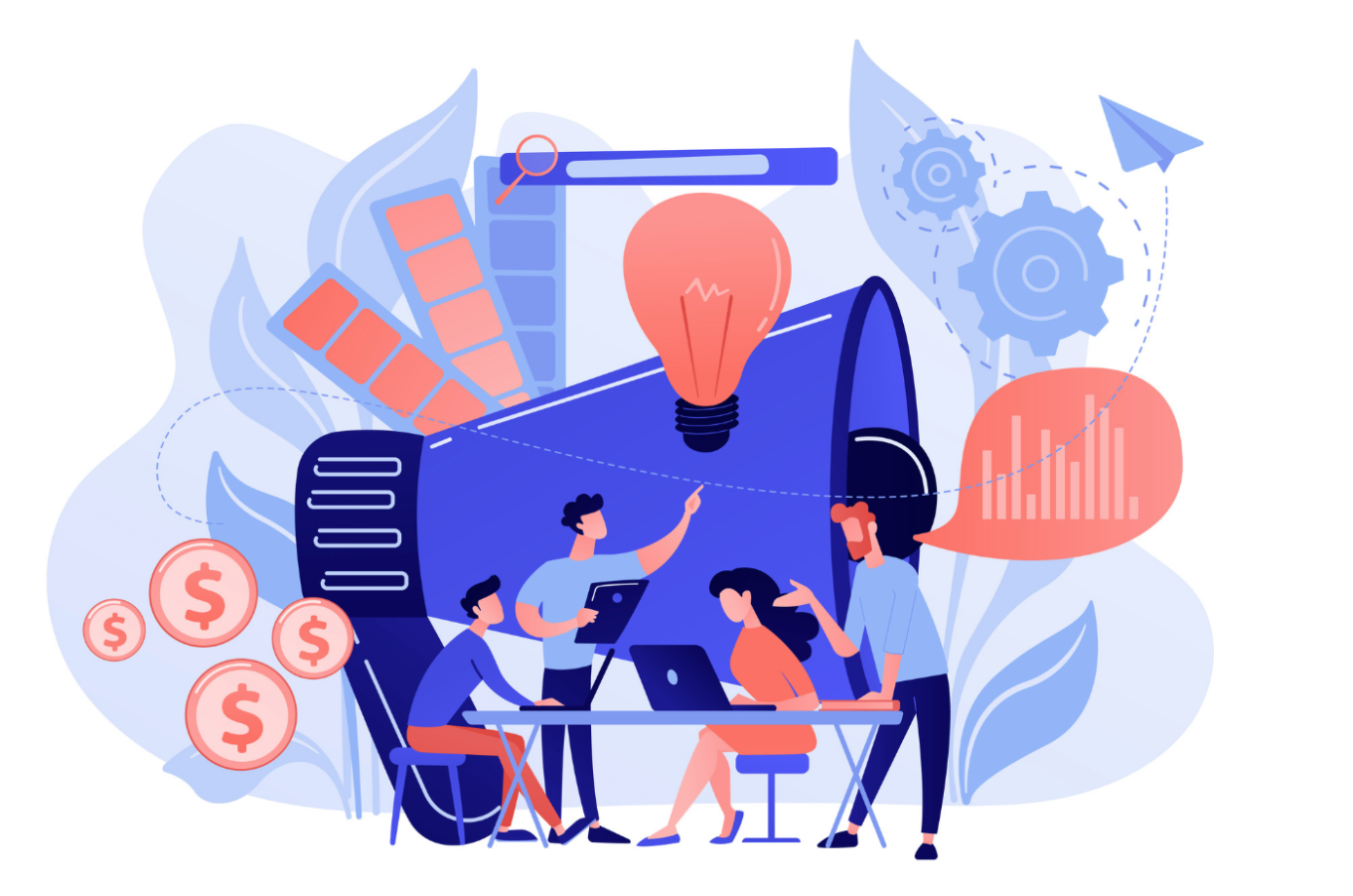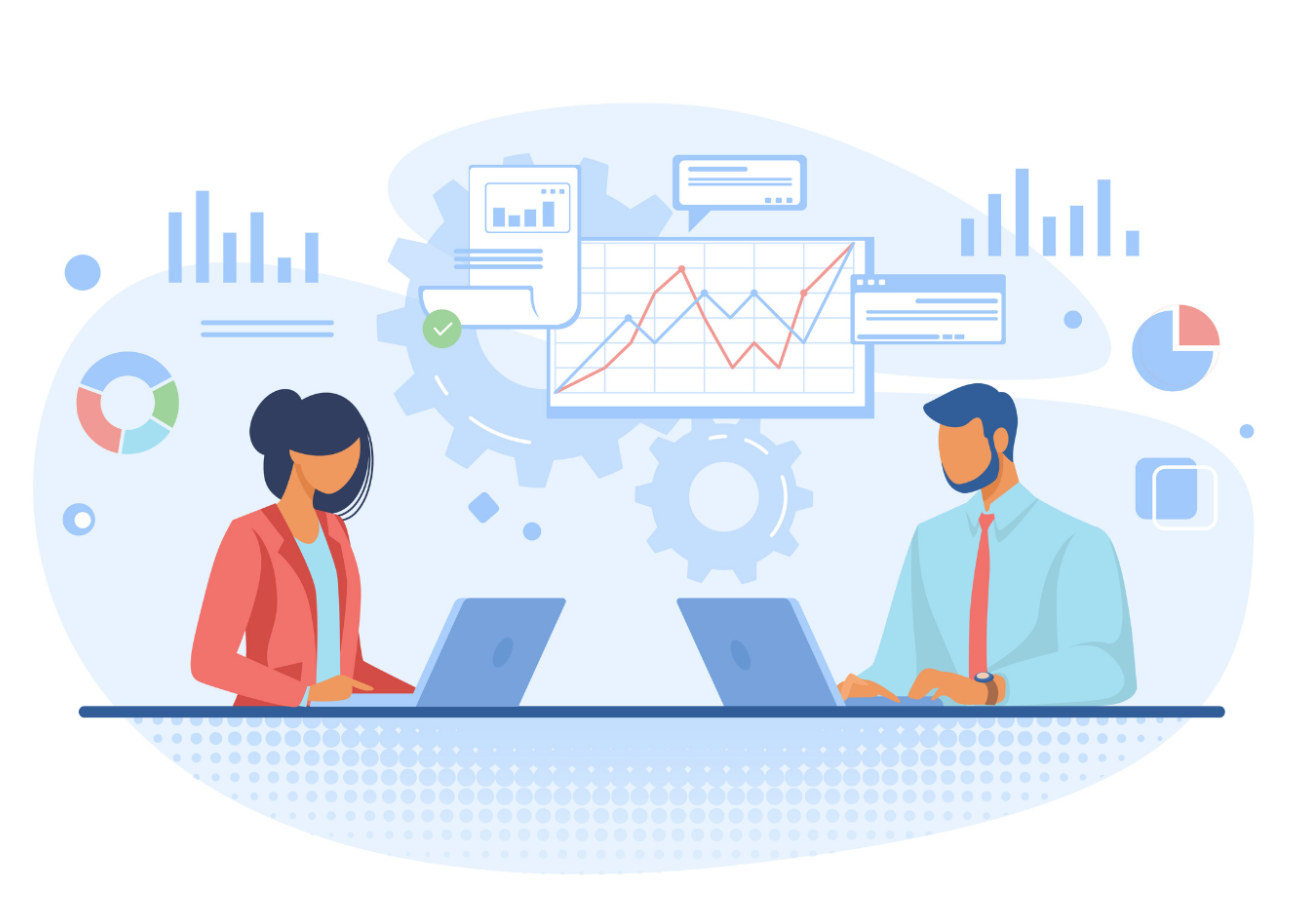I recently talked with Lee Odden, CEO of TopRank Marketing, a Minneapolis based digital marketing agency that specializes in strategic internet marketing consulting services. He’s frequently been cited for his digital marketing and PR expertise by leading industry and business publications including Forbes, The Wall Street Journal, The New York Times, The Economist, Entrepreneur, and Fortune Magazine. In 2016 Lee was recognized as a top ten influencer in digital marketing and content marketing. I talked with Lee about how content marketing and influencer marketing work together. Here are the highlights of our interview.
David Reimherr: Give us a brief description of what content marketing and influencer marketing are, before we dig how they can work together.
Lee Odden: Well, content marketing is in the creation of information for a specific audience, designed to affect a particular outcome that is measurable. So, it's an intentional effort at sort of empathizing with a particular audience to give them the information they need to make choices that lead them to the logical conclusion that that brand behind the content is the solution to whatever it is that their problem is, and that's got to be measurable. Influencer marketing, for me, works hand in hand with that. Traditionally, influencer marketing is known as sort of influencer relations out of public relations, where you have these celebrity endorsements. There's affinity created between a brand and a famous person, in the hopes that the famous person's audience will somehow become enamored with the brand. But, growing fast is this notion of influencer marketing. This is where rather than just publicity, it's marketing outcomes, customer acquisition, demands, and objectives are being achieved by brands who are collaborating with influencers a variety of different ways.
Fundamentally, it's about this: a brand aspires to be influential or known about something, and so they find people who already have that influence, and by working together, they hope to get exposure to that influencer's audience, and also achieve influence themselves. That is the core of what's driving a lot of influencer marketing. Of course, like with anything, you can get pretty sophisticated, and there's a lot more to it than just that.
DR: Tell me, what can someone expect, what kind of benefits can a company or marketer expect by actually combining these efforts versus doing them exclusively?
LO: There are 63 gigabytes of data being presented to individuals in North America every single day. It's an insane amount of information, and sure, humans are smart, but how do you make sense of that? We get a bit numb, don't we? And so, people distrust formal marketing communications, and the lack of trust that exists with advertising is growing. So, what do people trust? They trust experts, they trust peers, they trust people that they're connected with and that they feel like they know. With an influencer, meaning someone who has authority and credibility, and someone when they say something, or they promote something, their audience actually not only listens but acts on that advice - when companies can work with influencers, especially to create content, that content is actually trusted.
Working with companies can also be a huge benefit to your marketing efforts through affiliate marketing. While affiliate marketing differs from influencer marketing, both are great tools to have in any successful marketing strategy.
When you collaborate and co-create content with influencers, you're able to tap into some authentic voice of customers that people sitting in your content marketing department may not be inspired to write about just based on a collection of seven personas. And so, there's a qualitative content resource you tap into when you work with influencers. And they can be outside the company, but they can also be inside your company, and also amongst your customers- even your prospective customers. So, authenticity, quality of content, extended reach, and the most valuable benefit to me when it comes to influencers in content, is that content is really, if you're smart about it, a byproduct. The real value is the relationship that you build.
DR: So basically, it's a massive stamp of approval in addition to extended reach.
LO: Right. More than ever, people are empowered to publish. As individuals, we have this ability to communicate what we're interested in, and attract like-minded individuals, and grow our own networks of influence, or spheres of influence. Brands that can tap into both broad-based influencers and niche influencers have this ability to do what you're saying, both this sort of implied, “We've got shared values, we are on the same page, and this is something that a lot of people care about, so let's make content to advance that cause.” That is where a lot of value comes from, and people who are playing around in the SEO game right now, and just getting a bunch of influencers into a list and that sort of thing is fine, but do you feel something there? Does the influencer actually feel that was amazing, maybe? It's a useful but superficial thing.
DR: Can you outline a strategy for people just getting started with this?
LO: Hopefully, marketing strategy accounts for an understanding of the target audience in terms of how they discover information, their media consumption preferences, and triggers that motivated action. Architecting a strategy that will almost inevitably involve content, should understand that from a creation and distribution standpoint, influencers can play a pretty critical role. To add an answer to 'why are we doing this', and 'with who', you've got to know the 'what', and what I mean by that is, what does our brand stand for? That manifests as sort of a topic or even keywords in some cases, and so one of the starting points is, you've got to understand what that specific thing you're trying to become influential about. What is that thing that customers care about? Where do those ideas come together? The reason that’s the starting point is because that drives editorial in your content plan, and your search for influencers.
DR: So you've got your 'what' which helped you build your strategy, now you have an idea of the kind of influencers that would make sense with this. I feel like questions like, “Who do we reach out to?” or “How do I know who is good, or who has a powerful influence in my niche?” might be swirling in the heads of marketers, or brands, or owners. Can you provide some clarity here on some of the criteria you should look for?
LO: In the content planning, one should decide, how are we going to work with influencers? Are they just going to give us pull quotes? Are they going to create media for us? This matters a lot for influencer recruiting. Also, B2B and B2C are very different. If you're selling into a consumer marketplace, and you have demographics, like graphics behavioral data about your customers, you can leverage that information and go into a marketplace tool like Tap Influence for example, and you can shop for influencers. This is all pay to play, though, so it's like an advertising channel. There you can identify influencers, get data about their communities, and what they're influential about, and you can reconcile, okay, we want to be known for X, Y, and Z. Look, here's an influencer who's clearly influential about those things, and their community responds in a substantial way, and they're good at making videos. Well, we want to make videos, so there we go. In B2B, it can be very different. It tends to be a lot more relationship-based, and there's no single marketplace to go shop for B2B influencers.
Longer sales cycles, buying committees - B2B is so different than consumer product marketing. There you might use a platform. There are search engines for influencers. You can use something that's Twitter-specific like Followerwonk or BuzzSumo, or you could work with a platform, and there are a lot of different platforms out there. TapInfluence is a platform that has a B2C focus. Our client, Traacker, is an influencer marketing platform that focuses on B2B, and it's very much based on relationships. It has a search engine, so you can pop in the keywords you want to be influential about, and it will return a list of influencers, and all the social channels they exist on, and then you can sort them by what their network size is, how relevant they are to the topic you're searching on, and also, how well what they say resonates with the community. There are other platforms like that as well. I think there's more to it than just popping keywords into an influencer search engine, though, but you should talk to people in your company.
I think you should collect primary data from your customers, like who they listen to, and talk to your salespeople. Who gets mentioned? Talk to your customer service and executives in your company. You could look at who's speaking at conferences or writing books too I suppose, but I look at influencer recruiting effort as a recipe. So, it's silly to just go after the famous. It just makes no sense, and it ends up being a bit superficial, not qualitative.
DR: What about bloggers?
LO: If they're topically relevant, and they score really high from a relevant standpoint, and a resonance standpoint in terms of - let's say they only have five thousand subscribers, but man, those people react, they comment like crazy, they share, they engage, then yeah.
DR: Do you have some tips now on making this first connection with influencers?
LO: I can tell you what not to do - in fact, I made a list along with the lines of 50 Ways to Leave Your Lover- you can just Google that - fifty ways to engage influencers. First, do your homework. Find out what is it that makes that influencer tick. In other words, what do they care about? And the most effective thing is if you want to build a relationship with someone. What are they doing? What are they talking about? And the most effective thing is to find out what they're not getting elsewhere, and find out how you can give that thing to them in a way that helps achieve your brand objectives. Usually, that is some form of recognition, some form of promotion or visibility. So, when you approach them, don't approach cold. Make sure you're relevant, be succinct, be funny if you can, if it makes sense, but it's really important that you show empathy, and get in the head of that person you're reaching out to, and don't just lead as most people do with what the brand wants to get out of the situation.
DR: I think everybody needs to understand the importance of making this personal. That’s what's going to really drive these relationships. Now, say you’ve found the right influencers, you've connected with them, and you have it going. Can you talk about managing everything so it's sustainable?
LO: This is probably one of the areas where companies fall down a lot. Usually, companies will think in terms of campaigns, and they will think, okay, we've got our influencers for our campaign, and we got their contributions, and then we publish the thing we want to make, and then crickets. There's nothing. The brand or agency doesn't feel there's any need then to continue to communicate with that influencer until the next campaign comes up. During that dead space is when the relationship is at risk because competitors are more than happy to engage with that influencer and make a better instead of those who only come knocking for a sort of influencer booty call. If you're truly driven by a meaningful connection with these influencers, in that you have shared values, and make the effort to understand what those things are, you can create a lot of opportunities for communication.
When you do round-up posts, use their quotes and presentations. If they're a consultant, send them work. There are ways to create value in between campaigns that involve exposure, that involve giving those influencers things that they're very interested in. And never underestimate the use of something tactile. Ann Handley, who is an influencer for us and also one of our clients, posted that she had built a tiny house in her backyard, but it snowed a tremendous amount, and she couldn't get back to that tiny house, which is where she writes. I saw her post and I overnighted her snowshoes. She thought that was pretty damn cool because then she could go back to her tiny house, and of course, she published a photo of it.
You should use tools to monitor your influencer group, like the influencer platforms I mentioned. You can use social media monitoring tools to do that as well. You've got to have a human resource allocated to this effort. It's not something you can completely automate, but like I said, if there's a true inspiration and shared values between your brand and those influencers, that should motivate a lot of different engagement and interaction opportunities in between campaigns.
DR: What are some of the listening tools that you have found work best for you?
LO: At an enterprise level, Brandwatch is a pretty cool tool for social media listening. For sophisticated data scientist types, it’s definitely a great tool for listening to communities. Influencers are part of those communities. If you've defined a specific cohort or group of influencers that you would like to track as a group, the tools that I mentioned already, like TapInfluence on the consumer side, or on the B2B side there are tools like Traacker, LittleBird, and InsightPool. If you're really into connecting with bloggers, you could use GroupHigh. You want to define a specific group of influencers and grow that group, but you want to pay attention to just that group if you can. And get a river of news, some kind of filtering, and sorting, and ranking, trending information about what that group of influencers is saying, some keyword monitoring, mentions of your brand, and mentions of content that they've contributed to and that sort of thing, those are all important features of a listening tool.
DR: So, outside influencer companies are paying to get influencers involved. Is it a good or good or bad idea? Does it depend on the situation?
LO: It does depend on the situation, and I think on the consumer side of things, you've got a lot of creators. Creators are people who make YouTube videos, they're really good at Vine, Instagram, Snapchat, and Pinterest, and even blogging. These creators are really great at creating useful information. As such, they've attracted quite a bit of a following, and so they are like little mini-publishers. Actually, some of them aren't so mini. When you look at people like Casey Neistat on Youtube, one of his last posts had twenty million views. He was upgraded to first class, but it was like a twenty-one-thousand-dollar flight, and then he just blogged about that experience in the little suite inside the airplane. It’s incredible what kind of audience some of these creators have attracted, they're pros at the craft, and you can pay for the craft. If you pay for the reach and expect the same outcome as if you're doing a media buy, that's tough, and that's the model through which a lot of companies view influencers, or paid influencers - as the exact same thing as a media buy.
It does work sometimes, and sometimes it doesn't. You've got to do some due diligence, or hopefully, the platform you're using to identify and engage influencers on a paid basis has qualitative rating information that gives you some confidence that you're going to get what you're paying for. I'm more of a fan of the organic side. We don't typically pay outright for influencers, because we're coming to the table with a tremendous exposure opportunity for them that they're not necessarily going to get from another agency. However, we do compensate for craft, absolutely. We do compensate for people who have a unique ability to create media. If you need to do a single, one-off campaign, and you want to do it in a short period of time, you should probably expect to pay the influencers that will be a part of that kind of campaign. If you don't have the relationships, then you're going to have to buy those relationships. Otherwise, the more valuable scenario is one that is primarily organic, that is relationship-based, that has common values, common goals, a mutual value in the collaboration, and then you pay as you need to for very specific things.
DR: When you’re paying, are there certain benchmarks or metrics to consider?
LO: If you have the point of view that the craft is what you're paying for, then you're going to use the same criteria you would if you're going to pay for a consultant to create you a video or create you a sequence of blog posts. I mentioned TapInfluence, but there are a ton of marketplaces like Fango, Boostinsider shopping links, Popular Pays, Reelio, Great Find, Tomoson, AdLemons that say “Hey, make money online, come join” and “Brands, come and connect with influencers.” Then, there are others that have celebrities. I did a demo of a platform just yesterday and discovered that I could pay Ludacris an average of three thousand dollars, and he will tweet for me.
LO: The platform gave a price, and that was interesting to know and maybe help me make some decisions. But ultimately, there's a romantic feeling, so to speak, and it's intoxicating to think that we could possibly buy, for that amount, someone so famous. But then, you take a step back and think, what is this really going to do for our business? How does this line up with the strategy? If the strategy calls for amplification through a person with that network, rock on, but don't get famous drunk.
DR: Do you have any examples of content marketing combined with influencer marketing being done the right way?
LO: So, there's a very specific campaign example. There's a content marketing platform called DivvyHQ.
DivvyHQ is a project we worked on, and it’s a small business. It's not a hundred-million-dollar company. So, they're a small business, and they have X relationships with people in the industry. They were able to come to us and work with us, or it could be with any other agency that already has relationships, and it was turn-key. We already had relationships with tier one influencers, so the way it worked is that there is a key problem that their customers have or a perception that their customers or potential customers have, and it's difficult to use a content management planning platform. There's some difficulty, and therefore people don't want to buy it. Well, solving for that problem was the narrative or the driving story behind this project. The idea was to get quotes and advice from people who were influential about content marketing, since their platform is a content marketing platform, and the theme was: Easy-as-pie content planning: So easy your Grandma could do it. Influencers gave their tips, and an eBook was published with a grandma avatar & the theme of a recipe for pie metaphor.
We asked the influencers what their favorite pies were and we sent those pies to them. They created funny content around that, sort of as a bonus. Ultimately, it's not my preference to do a single campaign like that, but we were able to pull together these tier one influencers to give on -topic, relevant, practical advice, added a humorous metaphor that’s aligned with a key pain point amongst the target audience, and as a result, we beat the lead jingles by over five hundred percent.
DR: Do you have any parting thoughts?
LO: I guess the important thing is that when you start to think about this, really examine not only yourself, and what you want to achieve, and what you think might be possible when working with influencers in a way that it results in content, but also, what is it going to do for your customers? How is it going to actually differentiate you? And think about what influence really means. Who is influential? It's not just famous people. It's those niche influencers, but it could also be your employees, it could be your customers, and it could be your prospective customers as well. Think about what is it that you want to be known for, and that should really drive your approach. The other thing I guess I would say is that we publish a lot of content around this, so check out marketingblog.com. Ashley Zeckman on my team does a fantastic job as editor and publisher there, covering conferences where people are talking about this stuff, as well as our own ideas about influencer and content.
DR: How else can people continue to learn from you?
LO: I’m active on Twitter, @leeodden. I’ll be speaking at a variety of conferences, check them on our website. On the sidebar, there's a list of events. If we can meet in person, there's no substitute for in-person interaction for these things, but outside of that, the Twitter, or on our blog, or our company website, which is toprankmarketing.com
ABOUT LEE ODDEN
Lee Odden is the CEO of TopRank Marketing, a provider of integrated digital marketing consulting for progressive B2B & B2C companies. Odden has been recognized for his expertise with enterprise social media, SEO, content and influencer marketing strategies by The Wall Street Journal, The New York Times, The Economist, Advertising Age and Mashable. His blog atTopRankBlog.com has an active community with over 50,000 subscribers and has been rated the #1 Content Marketing blog 3 times by Content Marketing Institute. Odden is an active and in-demand public speaker having presented on digital marketing and PR topic at nearly 200 conferences in 13 different countries.













